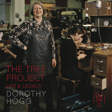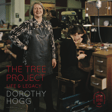
The Tree Project: Katy Hackney & Anna Gordon
In this episode, we speak to Katy Hackney and Anna Gordon.
Katy Hackney's jewellery is an on-going exploration of material, colour and form. She regularly exhibits worldwide and her work can be found in public and private collections across the UK and abroad. Katy also serves as an Associate Lecturer in Jewellery Design at Central Saint Martins.
Anna Gordon, now Head of Silversmithing and Jewellery Design at the Glasgow School of Art, studied at ECA under Dorothy Hogg graduating in 1994. Alongside her impressive teaching career, Gordon has an established reputation as outstanding artist jeweller in her own right, creating geometric kinetic jewellery, usually oxidised silver and gold, often constructed from repeated units and with a strong linear quality.
During her time as Head of Jewellery & Silversmithing at Edinburgh College of Art, renowned jeweller and educator Dorothy Hogg MBE inspired students in the workshop and beyond. For more information on Dorothy Hogg, the project and participants, visit: www.scottishgoldsmithstrust.org/tree-project.
Hosted by Ebba Goring
Edited & Produced by Eda Obermanns
Cover Image by Shannon Tofts
Music: Precious Memories by Shane Ivers - https://www.silvermansound.com

